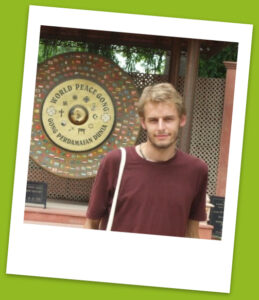“Nairobi’s central hospital is overcrowded and under-resourced”
May 7 Kenya needs to address the fundamental inequalities which plague its medical facilities in order to continue on the road to development, says Simon Hart, 27, a Commonwealth Correspondent from Britain living in Nairobi.
Kenya needs to address the fundamental inequalities which plague its medical facilities in order to continue on the road to development, says Simon Hart, 27, a Commonwealth Correspondent from Britain living in Nairobi.
Kenya’s development is hampered by its unequal society, in which an increasingly rich elite are polarised with the millions who hover over the breadline.
Social and economic inequality is a key determinant in the stability and prosperity of a nation, and therefore urgently needs to be addressed in Kenya. This is especially evident when reflecting on Kenya’s medical services.
There is no denying that Kenya has some of the most advanced medical facilities available. The Aga Khan hospital in Nairobi is as good as any private hospital you will encounter in the West, with dedicated research centres and a new special cancer care unit available.
Nairobi in particular has a wide selection of impressive hospitals, most of them private and available only to those who can afford it, with consultation fees alone costing roughly $15 in some hospitals, beyond the means of most Kenyans.
However, this is in stark contrast to the millions who rely on government facilities. Jomo Kenyatta hospital, Nairobi’s central hospital, is severely overcrowded and under-resourced. It is not unusual to queue for the entire day for simple medicines and check-ups, albeit for only a fraction of the price of private hospitals.
A Kenyan neighbor of mine is expecting a child shortly, but will only take his wife to the hospital at the last possible minute, as the maternity ward charges patients by the hour. His wife has never had an ultra-sound, and consequentially, her due date is little better than guesswork.
Despite being only a few miles from Nairobi’s best hospitals, one of the most in-demand government clinics in Nairobi’s suburbs has existed for years with absolutely no water supply or even hand sanitizer. There is only one doctor present, and often the clinic lacks even the most basic of supplies such as bandages and soap.
The recent national medical strike hit the poor hardest. For weeks, government doctors and nurses went on strike in protest over pay and working conditions. Hospitals and clinics literally shut down as negotiations reached an impasse, and patients were actively sent home. Unless you could afford private health care, Kenyans simply had to wait.
The situation was so dire in one town that nurses refused to treat a pregnant lady who subsequently bled to death, and had to be evacuated by the police to protect them from an outraged public.
Kenya needs to address the fundamental inequalities which plague its’ medical facilities in order to continue on the road to development. Whilst there is no doubt that Kenya has at its disposal some of the finest medical facilities, the real challenge lies in raising the standard of those available to the bulk of the population, the poorest.
…………………………………………………………………………………………………………………
About me:
“After spending time volunteering overseas inbetween my studies, I started working for an international NGO in New Zealand, and now I find myself living in Nairobi, Kenya.
“After completing my MA in International Development, I am very passionate about working in the development and political sector, and being in Nairobi helps me to pursue these ambitions.”
…………………………………………………………………………………………………………………
Opinions expressed in this article are those of the author and do not necessarily represent the views of the Commonwealth Youth Programme. Articles are published in a spirit of dialogue, respect and understanding. If you disagree, why not submit a response?
To learn more about becoming a Commonwealth Correspondent please visit: http://www.yourcommonwealth.org/submit-articles/commonwealthcorrespondents/
…………………………………………………………………………………………………………………



